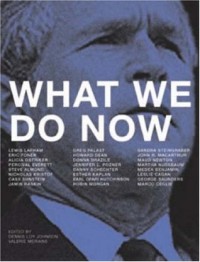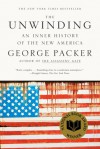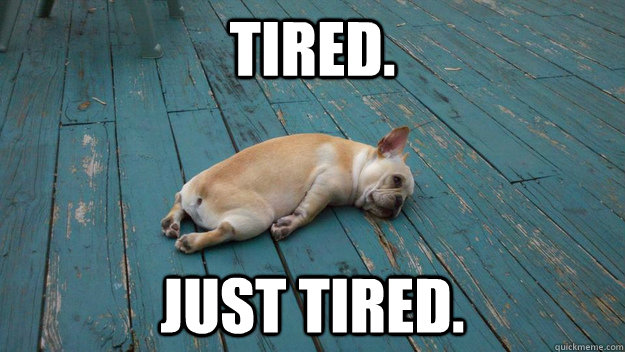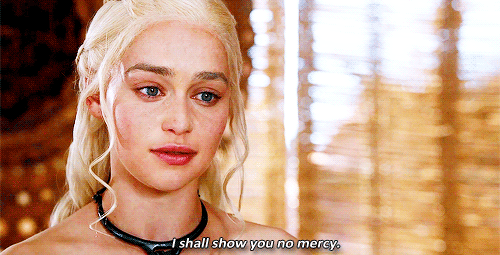
How soon we forget.
Or, if you are like me and were too young and clueless to really understand the implications of the 2004 election, how late we learn.
Following the election of La Naranja, a meme started circulating (shocking, I know). It was a picture of George W. Bush with his beady-eyed smile, accompanied by big, blocky yellow text: “Miss me yet?” I laughed and may even have agreed when I first saw it, even though I’m pretty sure this originated under Obama and is, quite frankly, insulting. (Despite what a lot of people seem to want to claim about “moving on” and “just accepting” election results, you may be surprised to hear that there was a tremendous amount of backlash to the election of our first black president.) The problem, of course, is that a large quantity of people did miss Bush, Jr. then and decided to do something about it now. They missed an America of religious fanaticism, deceptive economic bubbles, and the us-vs-them mentality of the War on Terror. So we decided to re-elect him in a new, more virulent form—quite possibly with Russia’s help and certainly with media complicity.
What We Do Now is an essay collection published by Melville House in direct response to Bush’s reelection. The parallels to this election and current political climate it contains are unnerving. Just as an example: the introduction opens on a story of election despair-inspired suicide—and the crashing of the Canadian immigration website.
I was just out of high school in 2004. I remember watching the events of 9/11 in every class just a few years before, but I was politically illiterate. The majority of my family has always been conservative, in degrees varying from quietly moderate to…less quiet and much less moderate. I felt divorced from their views from an early age, though I can’t exactly say why. I’d like to think it was because I’ve always been a voracious reader with wide interests but it’s just a guess.
It wasn’t until college that I started really paying attention, and even then that is a relative statement. I’ve still never comfortably affiliated myself with a party. For the sake of transparency, we’ll just go with “liberal,” though I suppose at this point “progressive” is more accurate.
I mention this simply for the sake of objectivity, which is not something I brought to this book.
What We Do Now is divided into nine sections: Attitude, Plans of Attack, Voting & Election Reform, Media, The Separation of Church & State, The Environment, Economics, International Relations, and Dissent. It’s a slim volume of just barely 200 pages but contains pieces from 24 contributors of varying backgrounds from journalists and politicians to editors and professors. The pieces are connected by their opposition to a Bush presidency and many share common themes but there are also contradictions that highlight the different ideas that take root within any group, no matter how unified in overall vision.
This has turned out to be one of those synchronicity-kismet-fate-whatever reads, one that arrived at exactly the time it was needed and could make the greatest impact on me. Perhaps it’s a bit odd that it was intended to be a product of its time, an immediate reaction to an imminent threat twelve years in the past and now feels so astonishingly relevant. Or perhaps that is to be expected since we obviously haven’t learned anything over the last few decades. The issues laid out in many of these essays are resurfacing in our political discourse in nearly identical form: “strong leaders;” racially-biased voter suppression; rust belt rage; Islamophobia; uninspiring candidates; reactionary politics vs. logic; the list goes on. Most of these essays could be repurposed for today with a simple search-and-replace for names and dates. Some of them have proven to be sadly prophetic, predicting our failures as a democracy with painful accuracy.
A few examples to demonstrate that no matter how things change, they still stay the same:
“We do, indeed, seem to have become a country where moderates, let alone liberals, simply don't stand a blessed chance, where anything other than an angry, intolerant, persecutorial attitude is scorned and mocked by a plentitude of bar bullies gone drunk with power.”
“One of the first issues we need to address if we’re going to get out the vote at a level required by a truly participatory democracy is the lack of excitement many people feel for the candidates put forth by our parties.”
“For many people, the most pressing issue is the fate of Roe V. Wade and women’s right to choose.”
“…America still maintains a segregated Apartheid voting system. Black, Hispanic, and Native American voters are the immediate targets, but all Americans dispossessed by the system are victims…”
“More important than any single botched campaign strategy is the overarching failure of the left to understand the role the corporate media plays in shaping public opinion, public policy, and ultimately, political leadership.”
How many of these snippets could come directly from a New York Times article or Medium thinkpiece today?
And yet. We did make a turnabout for a little while, didn’t we? Obama will go down in history as a truly great president, even with some decided mistakes and all of the roadblocks the obstructionists in congress regularly threw in his path. We can perhaps credit our current situation to the inherent pendulum-swinging tendencies of the two-party system. But we might also be able to give some credit to our ability to rally in times of extremity; the writers in this collection show that Bush’s election taught us some nasty truths about our nation and its divisions and for a time they impacted us enough to bring Obama into office for two terms (something no one would have foreseen when this book was published).
While much of my attention was drawn to the parallels with the politics of now, many of the contributors offer predictions and advice for the future. Some of their advice has proven to be a failure (the Democratic party should go even more centrist to capture the moderate Republicans!) and some of it has yet to be put into any kind of measurable practice even now. But I take comfort from it and I hope that this time maybe, just maybe, we might make use of it. Many of the essays offer talking points and advice that will be of great use in the trials to come, especially pieces like “Fighting Words for a Secular America” by Robin Morgan and “Our Mandate: Making Media Matter” by Danny Schecter.
Immediately following the current election, many commentators have thrown out the idea that “our country is more divided than ever.” I have a feeling these people make poor history students. Even disregarding, well, THE CIVIL WAR, Reconstruction, the communist witch hunts, Jim Crow and the Civil Rights Movement, the Vietnam war, among many other things, just looking a little over a decade into the past at the situation in 2004 shows those divisions have never significantly dissipated. We keep taping over the cracks when we would do better to actually fix them, though how is another matter. My dream would be to take inspiration from the Japanese art form kintsugi* and repair our divisions in a way that keeps them alive in memory but makes them a beautiful reminder of progress and change. The cracks should always be remembered—they just shouldn’t be allowed to break us.
*The Japanese art of repairing cracked pottery with gold, highlighting rather than concealing the flaw and making the piece one-of-a-kind as well as a reminder that beauty comes from imperfection.
 2
2
 2
2





























